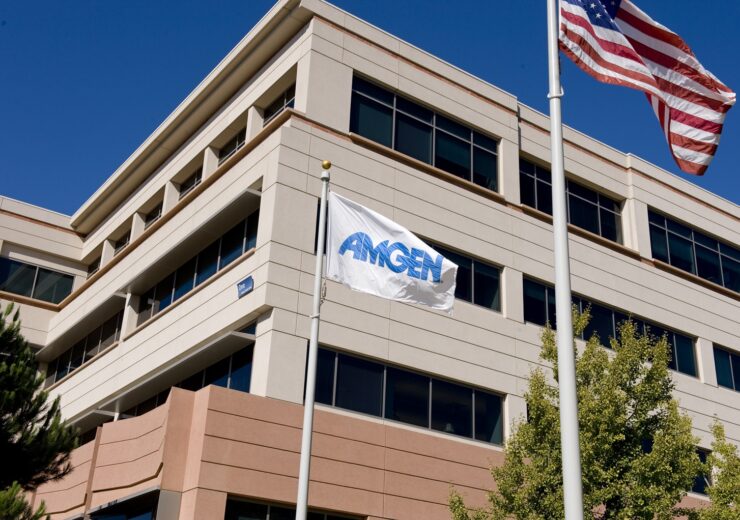Tarlatamab is an investigational, delta-like ligand 3 (DLL3) targeting Bispecific T-cell Engager (BiTE) therapy intended for the treatment of advanced small-cell lung cancer (SCLC) in adults with disease progression on or after platinum-based chemotherapy

Amgen Building 27, Thousand Oaks campus. (Credit: Amgen Inc.)
US-based biopharmaceutical company Amgen announced that the US Food and Drug Administration (FDA) has accepted its Biologics License Application (BLA) for tarlatamab and granted Priority Review.
Tarlatamab is an investigational therapeutic intended to treat advanced small-cell lung cancer (SCLC) in adults with disease progression on or after platinum-based chemotherapy.
It is a delta-like ligand 3 (DLL3) targeting Bispecific T-cell Engager (BiTE), engineered to bring a patient’s T-cells close to the SCLC cells by binding CD3 on T cells and DLL3 on SCLC cells.
The Priority Review for tarlatamab follows an FDA Breakthrough Therapy Designation earlier this year, under the Project Orbis framework and Real-Time Oncology Review (RTOR).
Priority Review is given to medicines that show potential for significant improvements over available options or in areas with currently no adequate therapy options.
The US health agency granted a Prescription Drug User Fee Action (PDUFA) date of 12 June 2024.
Amgen research and development executive vice president David Reese said: “The FDA’s Priority Review designation for this application underscores the urgency to provide new treatment options for patients with advanced SCLC who have progressed following treatment with platinum-based chemotherapy.
“While first-line treatments often show strong responses, patients can experience aggressive recurrences and long-term survival remains a challenge.
“Unfortunately, for patients who relapse, there are limited treatment options, emphasising the importance of bringing new therapies to this patient population with advanced disease.”
The US-based biopharmaceutical company’s BLA is based on results from the Phase 2 DeLLphi-301 clinical trial in patients with advanced SCLC with disease progression.
In the Phase 2 study, treatment with tarlatamab 10mg showed antitumor activity with a durable response in previously treated SCLC, with a safety profile consistent with the Phase 1 trial.
The drug showed an objective response rate of 40% in patients with advanced SCLC who had failed two or more prior lines of treatment.
The most frequent treatment-related adverse events include cytokine release syndrome, pyrexia, and dysgeusia, which were primarily grade.
Amgen is also evaluating tarlatamab in multiple studies, including Phase 1b DeLLphi-302 study, Phase 1b DeLLphi-303 study, Phase 3 DeLLphi-306 study, and Phase 1b DeLLpro-300 study.
